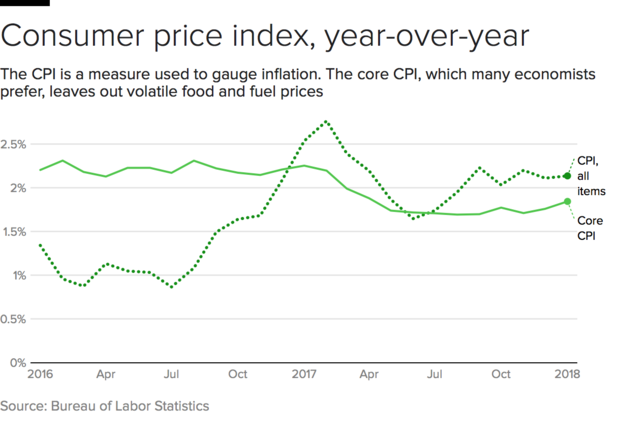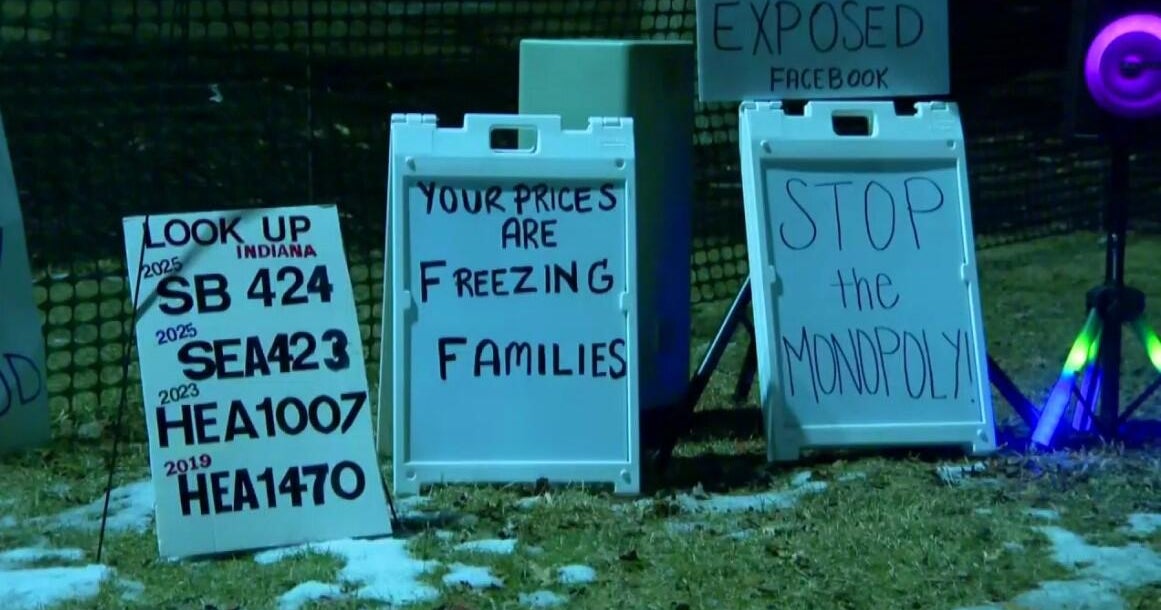Inflation data rises faster than expected, roiling investors
U.S. consumer prices rose more than expected in January as costs for clothing and food climbed higher, adding to investor concerns about rising inflation.
The Dow Jones Industrial Average slipped in early trading before reversing and gaining slightly, rising 4.28 points to 24,644.73. The S&P 500 lost ground while the Nasdaq gained in early trading.
Consumer prices rose 0.5 percent in January, compared with the expectation from economists for a 0.3 percent increase, according to Bloomberg News. That was the biggest climb in a year and is likely to fan inflation fears in financial markets. Over the past year, consumer prices rose 2.1 percent, higher than a forecast for a 1.9 percent increase.
The specter of high inflation has spooked many investors, who worry it would force up interest rates, making it costlier for consumers and businesses to borrow and weighing down corporate profits and ultimately the economy. Historically, fear of high inflation has led the Federal Reserve to step up its short-term interest rate increases.
It's a big reason investors have dumped stocks and bonds in the past two weeks.
"With unemployment so low, growth going to get big boost from tax cuts and the newly announced spending increases, the stars are aligned for inflation to pick up more from here," said Luke Bartholomew, investment strategist at Aberdeen Standard Investments, in an email. "So this could set off another round of selling as some investors fret about what it means for US interest rates."
The higher-than-expected CPI rise makes it more likely the Federal Reserve will boost interest rates in March, he added.
Separately, retail data released today pointed to weaker-than-expected sales, with U.S. retail and food sales slipping 0.3 percent in January. A decline in auto and building materials sales was particularly sharp last month, which could be related to unusually cold weather, TD Securities said.
"The one-two punch of a bigger-than-expected rise in the January total and core CPI of 0.5 percent and 0.3 percent, respectively, along with the weaker than expected January retail sales report knocked the stock market down from a big rise in pre-opening prices to an even decline as of now," wrote Stuart Hoffman, senior economic advisor at PNC.
He added, "We expect continued volatility in this ongoing stock market correction which we view as a buying opportunity given the continued solid economic and corporate earning fundamentals."
The Associated Press contributed reporting.




